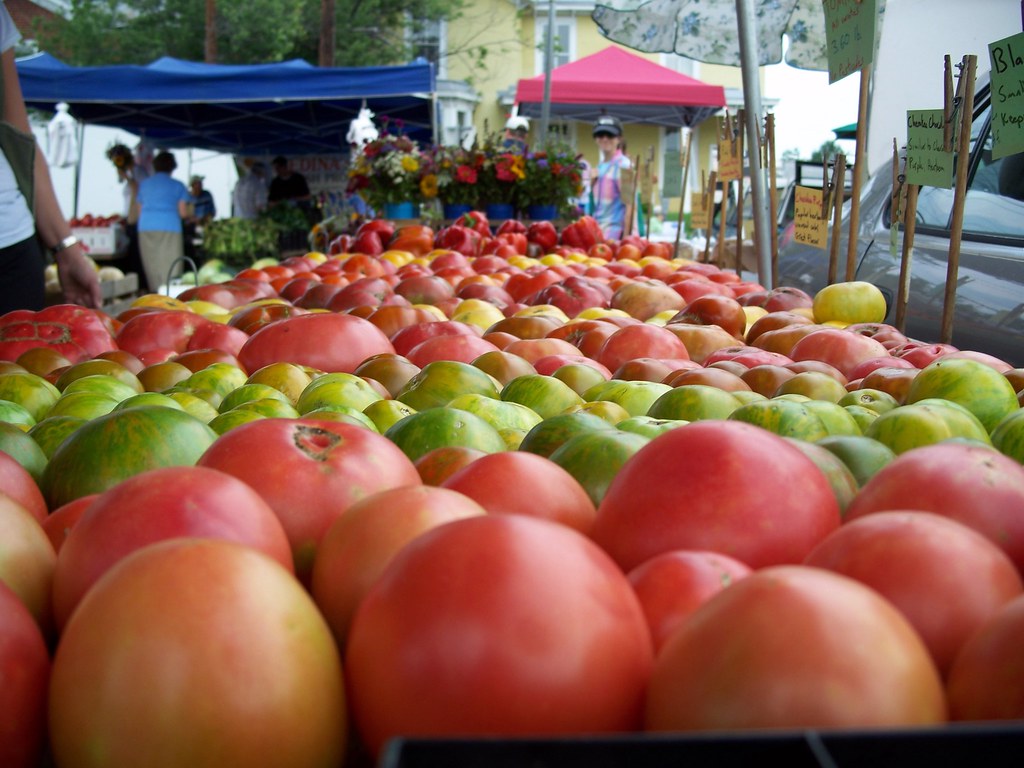I spent several hours on the Lawn yesterday at the Student Activities Fair -- I suppose with the increasing class sizes, it actually is safe to say that it gets more crowded every year! -- speaking with students about our sustainable dining program, encouraging them to sign up for the Green
 Dining mailing list, and handing out a ton of reusable mug punch cards (bring your own reusable mug to on-Grounds cafes and after eight purchases you're eligible for two free coffee/tea/sodas). Green Dining meeting days haven't yet been determined, but I'll be sending out an email soon in order to determine the details via doodle poll. I'm looking forward to continuing last year's conversations.
Dining mailing list, and handing out a ton of reusable mug punch cards (bring your own reusable mug to on-Grounds cafes and after eight purchases you're eligible for two free coffee/tea/sodas). Green Dining meeting days haven't yet been determined, but I'll be sending out an email soon in order to determine the details via doodle poll. I'm looking forward to continuing last year's conversations.Two major projects are being initiated this year. The first is an expansion on the already existing
 reusable to-go container program. For starters, this year the safety deposit is $5, instead of $7. When a student signs up to participate, she will get her two key tags (each of which is redeemable for a clean to-go container) and a frequent user punch card, modeled after the successful mug card. Card #1 allows a student to cash in for a free quesadilla from the Fine Arts Cafe after getting her meal in a reusable container ten times. When the student redeems the completely punched card for the quesadilla, the Fine Arts Cafe cashier will also hand her card #2, with a different reward waiting at the end of the card's completion. There are six cards in total, with the final completed card serving as a ticket for entry into a raffle to win a private, after hours sustainable dinner at the Fine Arts Cafe with ten invited friends.
reusable to-go container program. For starters, this year the safety deposit is $5, instead of $7. When a student signs up to participate, she will get her two key tags (each of which is redeemable for a clean to-go container) and a frequent user punch card, modeled after the successful mug card. Card #1 allows a student to cash in for a free quesadilla from the Fine Arts Cafe after getting her meal in a reusable container ten times. When the student redeems the completely punched card for the quesadilla, the Fine Arts Cafe cashier will also hand her card #2, with a different reward waiting at the end of the card's completion. There are six cards in total, with the final completed card serving as a ticket for entry into a raffle to win a private, after hours sustainable dinner at the Fine Arts Cafe with ten invited friends.The second project is Dining's Meat Free Monday campaign. This effort seeks to make vegetarian food more accessible in the dining halls by offering a vegan/vegetarian entree at one
 additional station (extra from the already 100% vegan/vegetarian station) during lunch and dinner on Mondays. There are a number of nutritional and environmental benefits to slightly reducing meat consumption, including reducing the risk of heart disease, diabetes, obesity and cancer; and reducing our greenhouse gas emissions, conserving our water resources, and reducing fossil fuel dependence needed for food production. Furthermore, the typical American diet contains more protein than needed on a day-to-day basis, so by choosing a meat-free alternative on Mondays, students generally need not fear not getting enough protein (or other nutrients).
additional station (extra from the already 100% vegan/vegetarian station) during lunch and dinner on Mondays. There are a number of nutritional and environmental benefits to slightly reducing meat consumption, including reducing the risk of heart disease, diabetes, obesity and cancer; and reducing our greenhouse gas emissions, conserving our water resources, and reducing fossil fuel dependence needed for food production. Furthermore, the typical American diet contains more protein than needed on a day-to-day basis, so by choosing a meat-free alternative on Mondays, students generally need not fear not getting enough protein (or other nutrients).Let Dining know what you think of these new programs!














